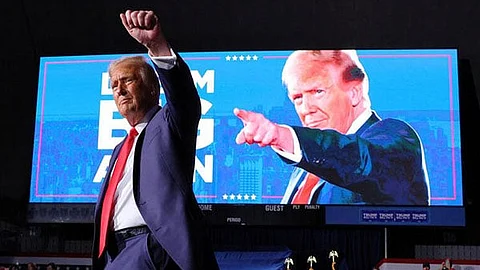
- News
- Campus
- Exam
- Podcast
- Web Stories
- Do You Know
- Path Finders - UG Programs
- Videos
- Élitscape

The United States is a popular study location for overseas students, owing to programmes such as Optional Practical Training (OPT) and Curricular Practical Training (CPT). These programmes enable students to work temporarily in the United States after completing their education.
However, the US education system for international students may alter under President Trump's administration.
Optional Practical Training (OPT) allows overseas students with an F1 visa to work in jobs related to their field of study. Students can work for up to 12 months after graduation, while STEM graduates (Science, Technology, Engineering, and Math) can apply for an additional 24 months, for 36 months.
A few policy experts in the United States now claim that OPT and CPT have been misused, Financial Express reports.
For instance, on January 31, Jessica Vaughan, Director of Policy Studies at the Centre for Immigration Studies, testified to the United States Congress, urging harsher immigration laws. She claims that a few schools have taken advantage of these initiatives, forming bogus institutions that allow students to work illegally.
There is no effective oversight to guarantee that businesses observe labour regulations. These programmes are currently the largest guest worker programmes in the United States, employing 5,40,000 former students without strict rules.
Vaughan proposed increased regulation of schools that provide student visas (I20 forms). She also proposed that schools with a large number of students overstaying their visas risk losing permission to admit overseas students. She further requested the abolition or tighter oversight of OPT and CPT, which were never officially recognised by Congress.
According to her, America requires tighter procedures to prevent student visa misuse, as many F1 and M1 visa holders remain in the United States illegally after their visas expire. F and M visas have the highest overstay rates of any temporary immigration category.
Students from 32 countries had overstay rates that exceeded 20 per cent. Brazil, China, Colombia, and India all have more than 2,000 students who have overstayed in the United States. In 2023, 7,000 Indian students were the most likely to overstay their student visas.
If these suggestions become legislation, foreign students may be denied the opportunity to work in the United States after graduation.
